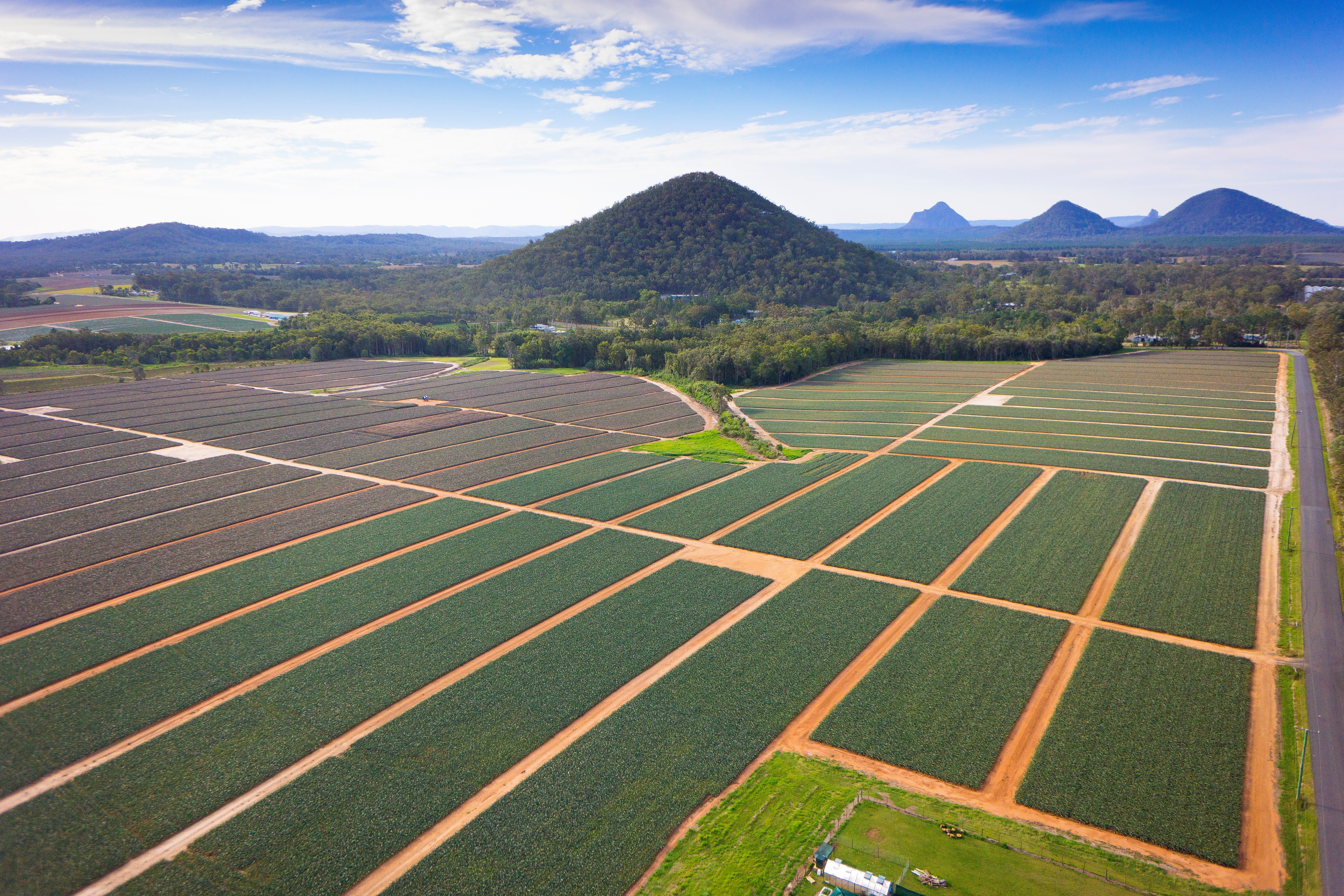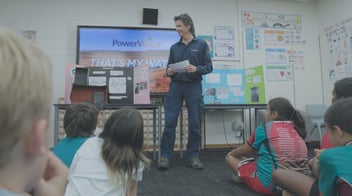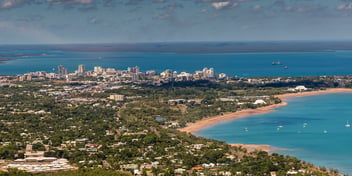Award-winning irrigation scheme tackles water security in SEQ

A pioneering irrigation project is transforming water security for South East Queensland farmers, delivering Class A recycled water for fruit crops while protecting local ecosystems.
Unitywater took out the sustainability honour at the Queensland Project Management Achievement Awards for its first-of-a-kind Wamuran Irrigation Scheme, an innovative initiative providing local farmers with climate-independent water supply.
Unitywater Executive Manager Sustainable Infrastructure Solutions Mike Basterfield said the recognition highlighted the innovation and commitment driving the project.
“This award is a testament to our teams' dedication and perseverance in delivering a groundbreaking project for Unitywater, which has now earned state-wide recognition,” he said.
“What makes this project the first of its kind is that it’s providing recycled water to minimally processed food crops, which is an exciting step for both the local water industry and farmers and demonstrates our commitment to sustainability.”
Benefiting both the community and the environment, the Wamuran Irrigation Scheme will distribute Class A recycled water from the Caboolture South Wastewater Treatment Plant to farmers, after undergoing advanced treatment processes, disinfection and testing.
Basterfield said the scheme not only provides South East Queensland farmers with much needed water security, it also reduces the amount of nutrients being released into waterways – a boon for protecting local environments.
“By providing farmers with a consistent supply of over 1051 Olympic swimming pools' worth of high-quality water each year, we will help them mitigate the impacts of unpredictable weather and climate change as they grow valuable crops such as turf, raspberries and strawberries,” he said.
"Redirecting this recycled water to agriculture, instead of releasing it into local waterways, also brings significant environmental benefits by keeping 11 tonnes of nitrogen and 1.8 tonnes of phosphorus out of the Caboolture River system annually.
“Water is our most precious resource and we can maximise its value, reduce environmental impact and support a more sustainable future for our communities.”
Uniquely innovative
Unitywater Project Manager Justin Simonis said providing recycled water to minimally processed food crops is a significant hurdle requiring stringent processes, which is one of the reasons why this initiative is very different to other irrigation schemes.
“This is a high-exposure recycled water scheme used for irrigating minimally processed food crops like strawberries, raspberries and pineapples,” he said.
“There are other schemes out there, but this one stands out because our risk assessment framework produced a different outcome – higher quality than Class A water.
“Under the Australian Guidelines for Water Recycling, Class A water focuses mostly on bacteria control, but our assessment required additional virus and protozoan barriers. That pushed us to deliver a higher water quality than most existing schemes.”
Aside from the need for more stringent water quality parameters, Simonis said the delivery method is also unique: “The water is pumped at pressure directly into the growers’ irrigation systems – there’s no on-farm storage”.
“This approach reduces environmental risks, such as contamination from overflow in farm dams. We also have a former quarry along the pipeline alignment with 1.4GL of storage,” he said.
“This allows us to bank water during low demand and meet peaks when demand triples. This means that we can supply up to 24ML per day when needed, even if we only produce 8ML per day, helping us manage seasonal water cycles and requirements."
Pioneering sustainability
Simonis said the Wamuran Irrigation Scheme is one of the best circular economy projects he has been part of delivering, as well as a project that creates excellent outcomes for the local environment.
"The scheme diverts around 11 tonnes of nitrogen and 1.8 tonnes of phosphorus annually from the Caboolture River. Reducing nutrient discharge aligns with Unitywater’s sustainability goals and helps prevent river degradation,” he said.
“Caboolture is one of Queensland’s fastest-growing regions, which means more effluent will need treatment. This project helps us manage that sustainably.
“We also provide farmers with water quality data so they can tailor their fertigation methods. If our water contains potassium, for instance, farmers don’t need to add it separately.
“It’s a great system. While farmers still need to supplement nutrients, they save costs by adjusting based on what’s in the water.”
One of the key reasons the initiative was approved was its cost-effectiveness, Simonis said, with the financial side of the scheme standing as an excellent example for other water service providers to consider in future.
"It was the most financially viable long-term solution. Recycled water projects often struggle with costs, but we proved that this approach offered the best net present value,” he said.
“Regulators in Queensland are very interested in understanding how we achieved that, as it could serve as a model for other projects.”
Simonis said Unitywater is currently working with the City of Moreton Bay on the local 40-year regional development plan, with potential expansion of the scheme dependent on development factors.
“Our long-term goal at Unitywater is net-zero nutrient discharge to waterways by 2040. We are the first utility to make this commitment, and recycled water will play a major role in that,” he said.
“Future stages depend on how the region grows and what additional effluent needs managing.”



